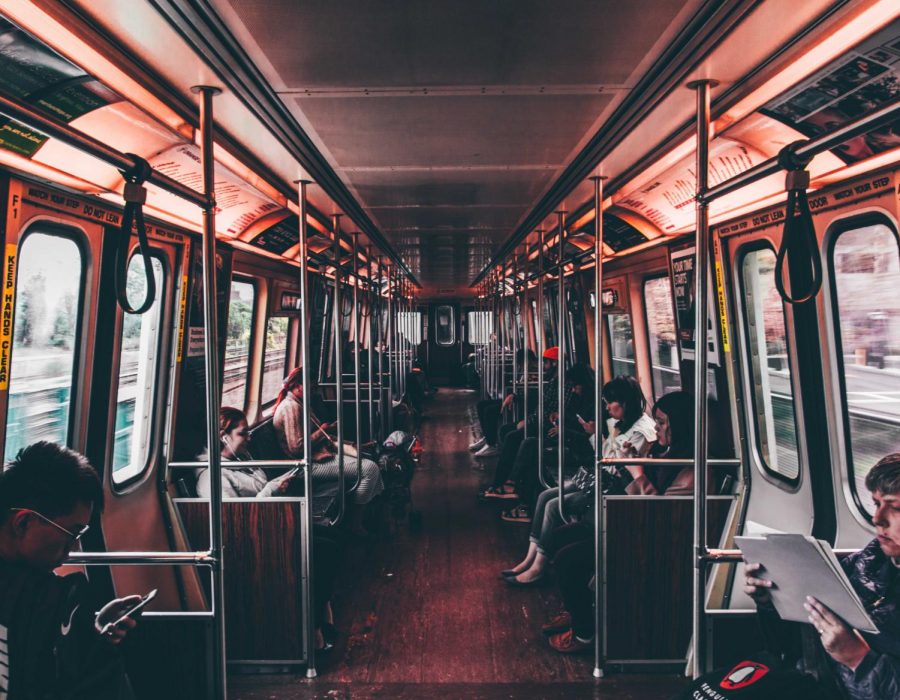Stand up for public transportation
Opinion Columnist Caleb Stekl discusses the potential funding cut by the Student Fees Committee of NISG which would eliminate Panther Safe Ride and the Panther Shuttle. Stekl argues that public transportation is a right and not a privilege and that students who disagree with the cut should write letters and petition.
Apr 25, 2019
Last week, the Student Fees Committee (SFC) of the Northern Iowa Student Government (NISG) approved a motion that would cut funding for the Panther Shuttle and Panther Safe Ride from the student fees appropriations for the 2019-2020 school year.
Panther Shuttle and Safe Ride are both free services, paid for and used mainly by students. The Panther Shuttle provides a vital service to UNI students and its benefits include providing transportation for students without vehicles, saving students money on parking fees and fuel costs, alleviating campus parking congestion, increasing accessibility for disabled students, decreasing traffic in and around campus, etc.
Safe Ride, while not used as frequently as Panther Shuttle, provides a necessary service for students, and its benefits include: decreasing the likelihood of students driving intoxicated, allowing women to avoid walking home alone and/or intoxicated and saving students from needing to pay a private company for a safe ride home, etc.
Public opinion on the matter is split between those who desire to see these vital services maintained and those who see them as a “luxury” that we cannot afford in “these tough financial times.” I will here not entertain the fantastic postulations of those cynics who purport either that (1) fighting against administrative decisions is farcical, nor (2) will I give credence or editorial space to those who dismiss the struggles of those who desperately require public transportation. Those who hold to the false belief that public transportation is a luxury and is a “privilege not a right” will, in time, be deposited to the trash bin of history, remembered as nothing more than enemies of humanity. What I will entertain, on the contrary, is the question of change, of a way out of this austerity inspired, administrative authoritarianism.
To posit change we must first describe: How did this motion get passed? The SFC, which is wholly funded by student fees, is not run by majority students. Rather, it is composed of half faculty and half student voting members. Therefore, we do not have democratic control of the funds that we, as students, create. However, I am not claiming that a student run committee would be any more beneficial for students: It was, in fact, a student who was the deciding vote in favor of cutting these services.
Further, once this decision is commented and (quasi) voted on by NISG, which amounts to nothing more than a charade of democracy, the decision is then in the hands of President Nook to either approve or disprove the cuts to the Board of Regents (BOR). The BOR and UNI administration are, to no one’s avail, extremely unlikely to appropriate funding for programs once they are initially cut.
So, what can be done and, more importantly, what must be done? If we are to maintain any semblance of campus democracy or, if we seek to fulfill the call of democracy our instructors demand of us, we must take action against this measure. This action is necessitated by the inherently unequal (im)balance of power that proliferates the university structure. Students compose over 11,000 members of this 15,000 person campus. Our tuition and fees fund about 60 percent of this institution’s budget. What is needed, then, is a change in this balance of power. Students must be able to bargain with those in power if our demands to administration and legislators are not listened to and met on issues such as tuition and student fees appropriations. This requires mass student mobilization, organized in such a way that it presents a serious threat to the administration’s monopoly of power. Before this is accomplished, though, we must strike back on the question of public transportation. For effective action, we must present President Nook with a serious show of support for public transportation, showing him that students will not accept this flagrant abuse of power endangering the safety, accessibility, well-being of the campus community. In the name of democracy and justice, send NISG a short letter or email [email protected] with your name and student ID if you would like to be placed on the petition in favor of keeping public transportation.

















